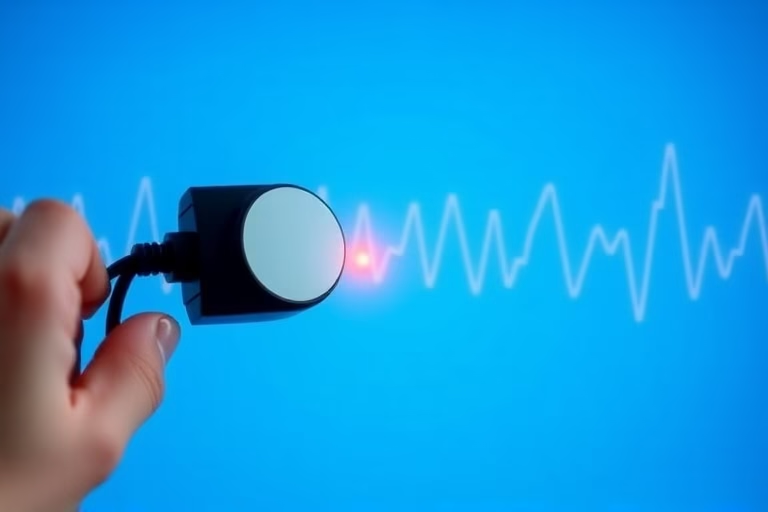Can blood pressure medication cause tinnitus? This question has gained attention among patients dealing with hypertension and related health issues. Tinnitus refers to the perception of noise or ringing in the ears, often without an external sound source. It can be a distressing condition that affects daily life.
Blood pressure medications, or antihypertensive drugs, are commonly prescribed to regulate blood pressure and prevent complications associated with hypertension. However, some patients have reported experiencing tinnitus as a side effect. Understanding the connection between blood pressure medications and tinnitus is crucial for managing symptoms and making informed decisions about treatment.
In this extensive article, we will explore the relationship between blood pressure medication and tinnitus. We will define tinnitus, discuss various classes of blood pressure medications, and examine the potential mechanisms that could lead to tinnitus as a side effect. Additionally, we will address the management of tinnitus for patients taking these medications.
Understanding Tinnitus
Tinnitus is a condition characterized by hearing sounds that aren’t externally present, commonly described as ringing, buzzing, or hissing. It can vary in intensity and may affect one or both ears. Tinnitus is a symptom rather than a standalone diagnosis, often indicating underlying issues, including hearing loss, ear infections, or exposure to loud noises.
The condition can be particularly troublesome, impacting concentration, sleep, and overall quality of life. While it can occur on its own, tinnitus may also accompany various health conditions, including hypertension. Understanding the nature of tinnitus, its causes, and its implications is vital for those on blood pressure medications.
Types of Blood Pressure Medications
Blood pressure medications can be divided into several categories, each working through different mechanisms to control high blood pressure. The major types include:
- Diuretics: Remove excess sodium and water.
- ACE inhibitors: Relax blood vessels by inhibiting a specific enzyme.
- Angiotensin II receptor blockers (ARBs): Block the effects of a hormone that narrows blood vessels.
- Calcium channel blockers: Prevent calcium from entering cells of the heart and blood vessels.
- Beta-blockers: Reduce heart rate and the heart’s workload.
Each of these medications can have distinct effects and possible side effects, including tinnitus.
Possible Side Effects of Blood Pressure Medications
Blood pressure medications can have various side effects. It’s important for patients to be aware of potential adverse effects, such as dizziness, fatigue, or nausea. In some instances, tinnitus may arise as a less common side effect. Recognizing the specific medication in use is important for understanding the likelihood of developing tinnitus.
Mechanisms Linking Blood Pressure Medication and Tinnitus
Exploring how blood pressure medications might contribute to tinnitus is essential for understanding patient experiences. Some studies suggest that certain medications may affect the inner ear’s fluid balance or blood flow, potentially leading to auditory disturbances.
Identifying Risk Factors for Tinnitus
Not all individuals taking blood pressure medications will experience tinnitus. Several risk factors may increase susceptibility, including age, pre-existing hearing issues, prolonged exposure to loud sounds, and other health conditions. Understanding these factors can help in risk assessment and management of tinnitus.
Managing Tinnitus While on Blood Pressure Medication
For individuals experiencing tinnitus while on blood pressure medication, management strategies may include sound therapy, cognitive-behavioral therapy, and changes in medication. Consulting healthcare professionals about any concerns related to tinnitus is critical for finding the most suitable treatment options.
Alternative Treatments for High Blood Pressure
In addition to standard medications, some individuals may explore alternative treatments for blood pressure control. Lifestyle changes such as diet, exercise, and stress management can play a significant role. Understanding how these alternatives may affect tinnitus is equally important.
Consulting Healthcare Providers
Open communication with healthcare providers is paramount for individuals concerned about blood pressure medications and tinnitus. Regular check-ins allow for adjustments to be made and alternatives to be explored, ultimately improving health outcomes.
Research and Studies on Tinnitus and Blood Pressure Medications
Numerous studies have explored the correlation between tinnitus and antihypertensive drugs. Ongoing research can shed light on the incidence of tinnitus among various blood pressure medications, helping to inform both patients and practitioners.
Frequently Asked Questions About Tinnitus and Blood Pressure Medication
- Can all blood pressure medications cause tinnitus? Not all antihypertensive drugs are associated with tinnitus. It varies by individual and specific medication.
- I am experiencing tinnitus. Should I stop my blood pressure medication? Consult with your healthcare provider before making changes to any medication regimen.
- What can I do to manage my tinnitus while on blood pressure medication? Management techniques include sound therapy and counseling. Consult with a specialist for tailored advice.
- Is tinnitus caused by anxiety linked to blood pressure medication? Anxiety can exacerbate tinnitus but may not directly result from blood pressure medication.
- Are there specific medications that are more likely to cause tinnitus? Some individual reports suggest that certain diuretics or ACE inhibitors may more commonly be associated with tinnitus.
Conclusion
Understanding the relationship between blood pressure medication and tinnitus is crucial for patients dealing with hypertension and related auditory symptoms. Although tinnitus can be a distressing side effect of some antihypertensive drugs, it is important to recognize that not all medications in this class cause tinnitus.
The mechanisms through which blood pressure medications may lead to tinnitus are not entirely understood, but factors such as fluid balance in the inner ear and blood circulation can play roles. Identifying risk factors and managing these symptoms through various means can improve quality of life.
Patients experiencing tinnitus should seek advice from healthcare providers to explore management options and discuss potential medication adjustments. Staying informed about the medications being taken, their side effects, and alternative treatments can empower individuals to make the best health decisions.
Ongoing research is vital in understanding the implications of hypertension treatments and their connection to auditory health. For those navigating the challenges of blood pressure medication and tinnitus, proactive communication with healthcare professionals and awareness of management strategies can lead to better outcomes.
Further Reading
What Type of Psychotherapy Is Best for Anxiety?







